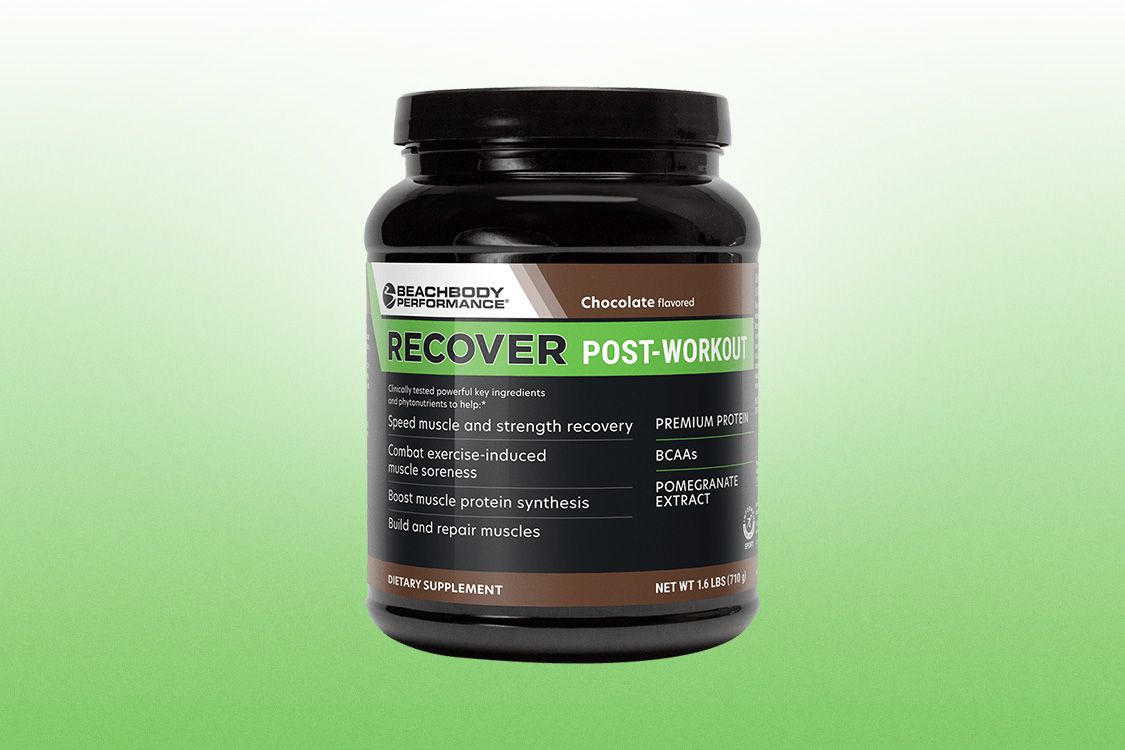Patti Catalano - Running For Her Life
Once famed as the top US female distance runner, Patti Catalano Dillon declined into despair and homelessness. Now, she's back -- hopeful and ready to compete again.
Slowed by age and injuries, as well as long battles with bulimia and depression, Patti Dillon saw her record-breaking running career come to a halt when she was in her mid-30s. A short time later, her third marriage also ended, and she was laid off from her position as a job-training specialist at a Native American center in Jamaica Plain. In the winter of 1989, she found herself homeless. She lived in her car, trying to stay warm and parking overnight on streets where she thought she would be safe.
Like many runners of that era, Dillon had gravitated to the Bill Rodgers Running Center. The small shoe store, located first in Cleveland Circle, then on Beacon Street, and now at Faneuil Hall Marketplace, was and still is a hub for elite runners, who go to chat or to meet for training runs. Dillon went because she had nowhere else to go. Sometimes apatron would note the long, straight black hair, parted in the middle, or the distinctive high cheekbones and brown eyes and ask if she was Patti Catalano or Patti Lyons, names Dillon had run under in the late 1970s and early 1980s. Lyons was her maiden name; Catalano, the name of her second husband and coach. She was once the country's greatest female distance runner.
She had held the American record for almost every distance from 5 miles to the marathon and world records for the half-marathon, 20 kilometers, 30 kilometers, and 5 miles. She was the first American woman to run a marathon faster than 2 hours 30 minutes. She placed second in the Boston Marathon three years in a row, earning a card in the game Trivial Pursuit.
At the peak of her success, she was one of Boston's favorites, introduced to standing ovations at Boston Celtics games. Her achievements came at the height of the first running boom, and they helped to open the doors for the legions of women who would discover long-distance running, a sport from which they had been barred. Women were first allowed to enter the Boston Marathon in 1972.
But when customers in the store asked if she was Patti Catalano or Patti Lyons, she said, no -- that she was her sister. "I was embarrassed," she recalls today. "Patti Catalano was a runner. I wasn't."
Jack Coakley, a wheelchair racer and longtime Bill Rodgers Running Center employee, remembers Dillon during this time. "She was very lonely, very withdrawn," he recalls. "It's hard to imagine she was that way."
ON A CLOUDLESS AUTUMN MORNING AT HARKNESS MEMORIAL STATE PARK IN Waterford, Connecticut, about 30 youngsters, ranging in age from 6 to 15, hover around "Coach Patti" at the start of a recent weekly practice of the Connecticut Home School Harriers. The running club, organized by Dillon and her fourth husband, former cross-country star Dan Dillon, is made up entirely of home-schooled children from the area. Included are the Dillon children, Raven, 7, and Aaron, 10, who are taught by their mother and their father.
Not surprisingly, Aaron and Raven have a knack for running. Both have done well in the club's time trials, and Aaron ran his first cross-country race in October. Raven is a miniature version of her mother -- the same facial features, long legs, slender frame, and hairstyle.
Patti Dillon, 50, runs in the park early in the morning, before her family awakes. Her face is weathered, her dark hair flecked with gray. She describes her life as "a roller-coaster ride, screaming with your hands up." Today, the ride has leveled off, but as she savors the joys of her latest life passage, she also is preparing to reenter the arena that brought her the earlier ups and downs.
"I'm aiming for a full comeback," she says.
Her target is the December 14 Honolulu Marathon. Her coach is Bill Squires, a founder of the Greater Boston Track Club and mentor of four-time Boston Marathon champion Bill Rodgers. Squires believes she can run a 3:10 to 3:20 marathon, which should be good enough to win her age division.
With the Home School Harriers, Patti Dillon's running is confined to sprints around the park to shout encouragement or give a hug to children who are struggling. After the workout, the Dillon clan piles into the family SUV for the drive back to its modest Colonial on a quiet street in New London. Patti and Dan, a sound engineer, got together 11 years ago, as she was preparing to leave Boston. They say they fell in love on their first date, and they were married within a week.
As she angles the vehicle into the driveway, Patti Dillon blurts out a commentary on her life: "Here I am -- the house in the suburbs, the two-car garage, the kids, a dog, a cat, and a husband who works so I can stay at home. Who would have believed it?"
Patti Dillon's journey from homelessness to the suburban ideal is almost as improbable as her ascent to the top of the running world 2 1/2 decades ago.
She grew up in Quincy's working-class Houghs Neck neighborhood, the eldest of nine children. Her father was second-generation Irish from Dorchester and an all-Navy boxer. Her mother, a Micmac Indian, had run away from home in Nova Scotia when she was 11 and wound up in Quincy working as a nanny after lying about her age.
Dillon lied about her age, too, to get a job as a nurse's aide when she was 14. She worked after school full time and used her earnings to help support her family and to cover her tuition at Sacred Heart High School in Weymouth and buy cigarettes. The school's athletic offerings were minimal, and other than a couple of years on a swim team, Dillon had no athletic experience.
She says she got little support from her parents. She cannot recall being hugged or told she was loved. She does remember her father hitting her mother as well as her and her siblings. He died when she was 19. Her mother died several years ago.
After graduating from high school, Dillon got a job at Quincy Hospital as an aide. She was 40 pounds overweight and smoked two packs of cigarettes a day. "I was very insecure and quiet as a mouse," she recalls. "I was ripe for the weaknesses to develop into a lifestyle."
One day, Dillon glimpsed a former high school classmate at the hospital. The woman had beautiful long hair, a trim figure, and was smartly dressed, Dillon remembers. "I wanted what she had. She inspired me to take a long look at myself and do something about it."
Like many other people in the 1970s, Dillon started by buying Kenneth Cooper's Aerobics, a book that had launched a fitness craze back then. The book said running was a good way to lose weight, so Dillon decided to give it a try. "The book said to wear your most comfortable shoes," she says. "My most comfortable shoes were my Earth Shoes."
Earth Shoes -- heel lower than toe -- are probably the last thing a beginning runner should wear. But on March 28, 1976, just days before her 23d birthday, Dillon stepped out in them from the Quincy YMCA and jogged a block to Mount Wollaston Cemetery, which is circled by a 1-mile road. She ran the loop seven times. A police officer stopped her once to ask if she was OK, and she assured him that she was. In fact, for the first time in her life, she felt she could breathe.
"It was an overwhelming, joyful feeling," she says. "It was what I would live for."
Her feet aching and blistered, she returned to the Y, stood under the shower, and wept.
Soon she acquired some athletic shoes and began entering local road races. She won them all. In the fall of 1976, six months after those loops around the cemetery, she entered her first marathon, the Ocean State in Rhode Island, and won that, too. She had had no professional training. And she retained some old habits: She was still smoking a pack a day when she won her first marathon and did not give up cigarettes until 1978.
She was married briefly during this period, but the marriage was annulled.
In 1977, she finished second in the inaugural Bonne Bell 10-kilometer road race for women, now the Tufts Health Plan 10K. Her back-and-forth duel with winner Lynn Jennings established her as a force on the Boston racing scene.
The next year, she met Joe Catalano, track coach at Quincy High School, who promised to take her to the next level. He set her on a strict program, which included strength training, high mileage, and speed work. He got her to quit smoking. In 1980, they were married.
Dillon stepped onto the national stage in late 1978 in the Honolulu Marathon, where she set a course record. She would go on to win that marathon in each of the next three years, breaking her course record each time.
She won a sponsorship from Nike in 1980, and it allowed her to devote full time to running. She set the US marathon record for women in October 1980 in New York City, then broke it the following April in Boston. She set the American 15K record for women in Jacksonville, Florida, on a Saturday and the next day set an American 5-mile record in Boston.
"There was a period of time when Patti was almost invincible," says Rodgers.
Grete Waitz, who outran Dillon in the 1980 New York Marathon, says, "She was a very tough competitor. She gave it her all."
The other great female runners of the era -- Joan Benoit, Allison Roe, Jacqueline Gareau -- were soft-spoken portraits of serenity in motion, barely touching the ground with their graceful strides. Dillon was high energy, jumping and clapping at the starting line, fierce and focused on the course.
Tom Derderian, author of a history of the Boston Marathon and coach today of the Greater Boston Track Club, says there was desperation in Dillon's running. "In contrast to other people, she didn't have a college degree to fall back on," he says. "She didn't come from a wealthy family. Running for her was an all-or-nothing thing, to rise up."
Some of Dillon's best times and most wrenching losses came in the Boston Marathon. In 1979, she was the favorite but was unable to match a surge at 17 miles by Benoit. In 1980, Dillon thought she was leading late in the race but was actually behind Gareau. When a male runner pointed out Gareau ahead, Dillon made her move, but it was too late. Most accounts of that race overlooked their duel because of the furor over impostor Rosie Ruiz.
In 1981, Dillon was leading at Cleveland Circle, 4 miles from the finish. A large crowd was there, spilling into the street and creating a narrow corridor for the runners. A mounted police officer, trying to control the spectators, suddenly shifted sideways into the street, and Dillon slammed into the horse's hindquarters.
She bounced off and was caught by Derderian, who was running behind her. She regained her balance, but shaken and bruised, Dillon could not stay with New Zealand's Roe, who surged a mile later.
Dillon set an American record but again was second. She remembers crossing the finish line and wanting a hug from her husband and coach. Derderian says that Joe Catalano greeted her with arms crossed, and said: "I don't know what to do with you, Patti. You ran an American record. I just don't know what to do. Please stop crying."
In the three years that followed, both her marriage and her running went into decline. Today, she says she learned a lot from Catalano, but his regimens were too strict: "There wasn't any room for fun."
Then came the injuries: first her hip and hamstring, then a ruptured tendon in her foot, then a stress fracture in the same foot. Barely more than 100 pounds when she was competing at the top of her game, Dillon was up to 150 pounds by 1983. She rallied the next year, when for the first time the Olympics would have a marathon for women. She dropped 40 pounds but failed to qualify in the trials that spring.
During this time, Dillon also was confronting the eating disorder that had haunted her from the start of her running. She was routinely downing large quantities of food, then throwing up. She was constantly exhausted, dehydrated, and full of guilt.
One day, she read a "Dear Abby" column on bulimia. "I said to myself, 'I do that.' I thought it was my own little secret."
She sought help at a hospital clinic but left after someone recognized her. She tried a second time but left again when she felt a receptionist gave her a scornful look.
"I knew I had a problem, and I had to fix it," Dillon says. "I told Joe, and it wasn't well received. I told Nike, and it wasn't well received. Pretty soon I was tainted. I heard the rumors. 'Patti's got a problem.' "
She says she finally overcame bulimia not with counseling or support groups but with prayer. She ceded her fate to a higher power, asked the Lord for strength, and found it. Her faith deepened several years ago, when she became a born-again Christian.
She made one last attempt to revive her career. In 1985, she won the Rio de Janeiro Marathon, the last time she would run 26.2 miles. She married for a third time in 1988. When it ended in early 1989, at the same time that she lost her job, her home became her 1983 Saab.
She views the four-month period of homelessness as a painful but necessary period. "It gave me time to think," Dillon says. "I got closer to God."
She and Dan Dillon were married in 1992. After their children were born, Patti Dillon quit running altogether. She gave away or lost most of her trophies. A few are in a glass case in the dining room, but the most prominent awards in the house are blue ribbons for baking that her children won at a local fair.
Dillon has never been invited back to the Boston Marathon to run or to participate in the festivities. "They really don't want to embrace second place," she says. "They have Billy. They have Joanie. They have Johnny Kelley. They have winners."
But she is remembered where she had her greatest successes. Last year, Honolulu Marathon organizers invited her to return to be inducted into the race's hall of fame. With her family, she spent a week in December being feted. "I'm so honored," she told the Honolulu Advertiser when she arrived. "I'm tickled, flattered, humbled. I consider myself incredibly blessed."
She ran part of the course one day with Dan, and the memories returned. She vowed to run the marathon the next year.
Squires, her coach, says he has brought her along slowly, concentrating on quality runs and adequate recovery. By early fall, she was running 17 miles at a 7:20 pace, which, if she maintains it for 26 miles, would probably win her a trophy in Honolulu. "I want her to run the race, but I don't want her to run it in four hours," Squires says. "That's not Patti."
She agrees: "I don't want this to be a death march."
As anyone who has ever stepped to the starting line of a marathon can attest, a race of that distance is a gamble, and it is no less so for Patti Dillon now than it was 25 years ago. Derderian says her venture is realistic but risky: "It's a delicate thing. When do you stop?"
Dillon says she has moved beyond the days when the outcome of a race could turn her life upside down. The big differences now, she says, are her faith and her family.
The Home School Harriers run on a stunningly beautiful loop that hugs the shoreline overlooking Long Island Sound. The tranquil setting, far from traffic, has sweeping expanses of lawn, formal gardens, and stands of stately trees.
Dillon takes great pride in the running achievements of her children and in the members of the club. At the Connecticut Home School Harriers workouts, she organizes a time trial once a month.
She herds the kids to the starting line, but instead of "Ready, set, go," she shouts, in her thick Boston accent, "God bless you. God bless your effort. And God bless this course." A pause, and then, "Hit it!"
And off the runners go.
To learn more about Patti Catalano today, go to http://www.pattidillon.com/
Robert Preer is a freelance writer who lives in Milton.



